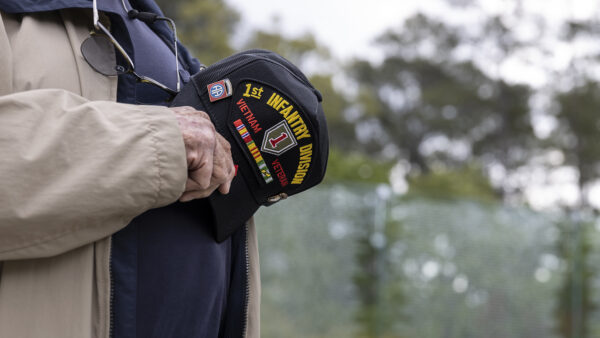
(Photo: Lance Cpl. Antonino Mazzamuto)
The VA celebrated a historic milestone as its Million Veteran Program, or MVP, welcomed its one millionth participant, making it the world’s largest research program of its kind.
Launched in 2011, MVP focuses on gathering extensive health and genetic data from Veterans to conduct groundbreaking research aimed at improving the detection, prevention, and treatment of various health conditions affecting both Veterans and the general population.
The program has already contributed to over 350 new health discoveries, addressing conditions such as cancer, diabetes, PTSD, suicide prevention, Alzheimer’s disease, cardiovascular diseases, kidney disease, and more. This data has been instrumental in advancing medical knowledge and has been featured in numerous peer-reviewed research publications.
Over 250,000 minority Veterans and 100,000 Women Veterans are participants in the VA’s MVP. It includes more people of African ancestry than any other research program globally, enabling researchers to better understand and treat historically underrepresented populations.
Participants in the MVP voluntarily provide a blood sample, complete health surveys, and grant researchers secure access to their health records. This data, secured and anonymized for privacy, is then used to study the complex interactions between genes, lifestyle, military experiences, and exposures to gain insights into their impact on health.
The program’s significance extends beyond Veterans, as many health issues associated with Veterans overlap with those of the civilian population. The large-scale data collected by the MVP helps researchers in studying a broad range of conditions, contributing to a better understanding of genetic risk factors and potential breakthroughs in treatment.
The MVP is not limited to genetic studies; it also includes the world’s largest database on nutrition. Participants provide valuable information about their dietary habits through a lifestyle survey, leading to discoveries such as the positive impact of yogurt on heart health.
Despite being a Veteran-centric program, the MVP’s implications are far-reaching. It represents a step in advancing medical research by combining genetic data with electronic health records from one million participants, a scale unimaginable just two decades ago. This massive dataset is processed using the Department of Energy’s powerful supercomputers, enabling researchers to analyze the genetic underpinnings of diseases thoroughly.
The VA program’s achievements include groundbreaking findings in areas like cholesterol management, genetic markers for peripheral artery disease, and insights into post-traumatic stress disorder. With new cancers being researched each year, MVP has made progress in areas including breast and prostate cancer. The diversity of MVP’s participants provides researcher with a wealth of information to study the interactions of genes and lifestyle factors in different populations.
As MVP continues to enroll Veterans, its researchers plan to release findings from studies on how genetic variants relate to various diseases. Veterans interested in joining MVP can do so here.












